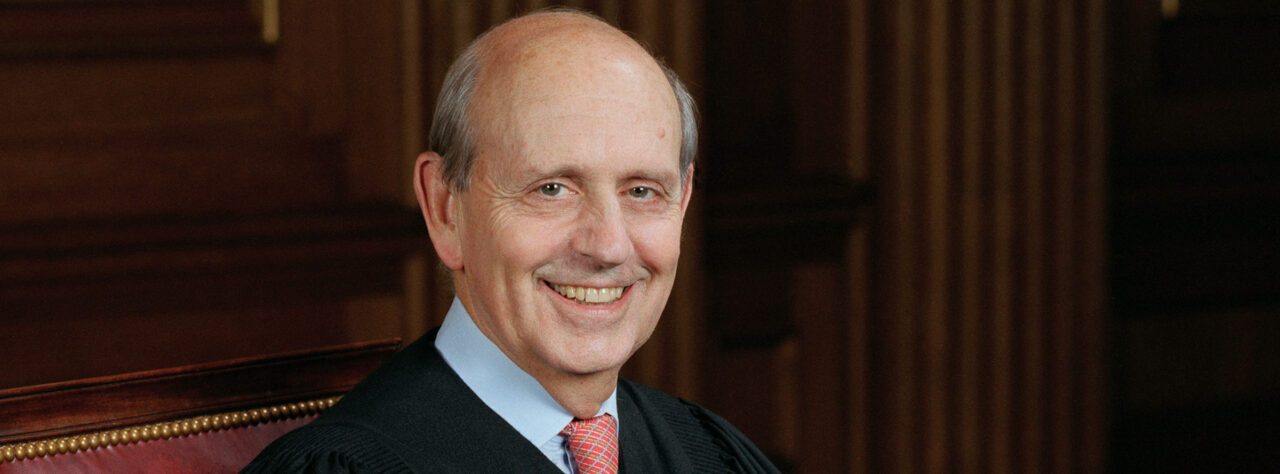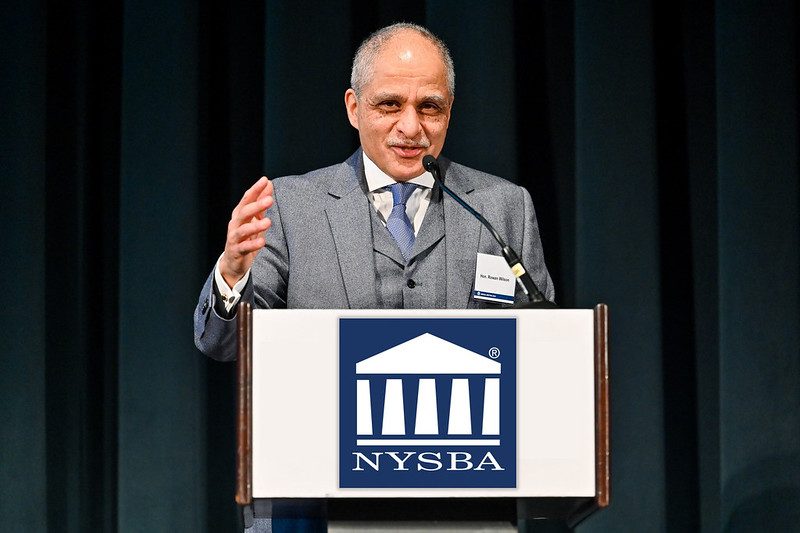Addressing Incivility
1.3.2023
To the Forum:
I recently conducted a virtual deposition of the defendant in a case in which I was plaintiff’s counsel. Given that this was a virtual deposition, it seemed that defense counsel felt that this was an informal encounter and did not have to abide by any sort of professional standards and appeared dressed only in, as far as I could tell, a t-shirt. Additionally, throughout the deposition, defense counsel repeatedly interjected or made improper objections to almost every question I asked the defendant. Defense counsel also instructed his client not to answer nearly 30 questions without any true, lawful basis. Countless times throughout the deposition, defense counsel made inappropriate comments including “you’re a joke,” “that was a horrible question,” and “well, I can tell who you voted for with that question,” all while laughing and scoffing at almost everything I said. At one point, counsel stated that “this must be your first deposition, since it is obvious that you don’t know what you are doing.” In one exchange in which I forgot to unmute my microphone, defense counsel groaned and stated that it would have been better had I’d stayed on mute so that no one would have to listen to my “dumb” questions. Throughout the deposition, defense counsel objected to even the most standard questions on the (improper) grounds that it was an effort to protect the defendant from my “harmful” questioning. Defense counsel even went so far as to advise the defendant not to answer my questions regarding their occupation.
Is the behavior of defense counsel unethical and/or sanctionable and if so, should I move for sanctions? What about the civility guidelines that I have heard so much about?
Sincerely,
Riley S.O. Offended
Dear Riley S.O. Offended:
Your question implicates rules governing civility standards typically set forth by the New York State Bar Association, the American Bar Association, local courts and specific judges. Lawyers are held to a higher standard when it comes to how they conduct themselves both in the courtroom and in society. As you and all lawyers well know, we must go through character and fitness assessments, background checks and demonstrate certain moral standards just to obtain our licenses to practice. Not only are lawyers responsible for keeping their own conduct in check, they are also responsible for ensuring that those under their supervision – their clients – conduct themselves properly as well.
Civility Guidelines
According to the New York State Standards of Civility, “lawyers should be courteous and civil in all professional dealings with other persons.”[1] This includes other lawyers despite the adversarial nature of our profession. The standard specifically states that “lawyers can disagree without being disagreeable” and they should avoid using vulgar language or ridiculing other lawyers, witnesses or parties. Regarding depositions specifically, New York courts advise that lawyers should “conduct themselves with dignity and refrain from engaging in acts of rudeness and disrespect.”
As a general rule, if you wouldn’t say or do something before a judge, you shouldn’t say or do that thing in a deposition. This includes the expectation that lawyers not obstruct questioning during a deposition or object to questions unless necessary. Further, lawyers “should refrain from asking repetitive or argumentative questions and from making self-serving statements.”[2]
It is safe to say that defense counsel’s comments constitute “self-serving statements.” In making these comments and preventing defendant from answering your questions, he distracted you from your questioning, making it difficult for you to complete the deposition. It appears he also attempted to humiliate and ridicule you to the parties and other participants of the deposition, which is behavior that the Standards of Civility explicitly advise against.
The American Bar Association has its own civility standards, which it collectively refers to as “Guidelines for Conduct.”[3] The guidelines are modeled after the Standards for Professional Conduct used by the United States Court of Appeals. Comment 1 of Rule 1.3 states that “the lawyer’s duty to act with reasonable diligence does not require the use of offensive tactics or preclude the treating of all persons involved in the legal process with courtesy and respect.” This includes opposing counsel.
It is safe to say that defense counsel’s behavior was rude and disrespectful and does not abide by the civility standards laid out both by New York State courts and the ABA. In this instance, whether defense counsel agreed with your questioning or not, he should have acted in a professional manner rather than making disparaging comments to you and ridiculing the questions you were asking. If defense counsel disagreed with a question you asked during a deposition, he should have respectfully noted his objection on the record, rather than adding his rude commentary and seemingly objecting just to be disruptive. If he truly had a legal issue with your questioning that he felt could not be resolved by simply noting his objection, he could have requested to confer with the judge to express his grievances.
Improper Objections During Depositions
According to the Uniform Rules for the Conduct of Depositions Rule 221.1, objections during a deposition must be made “succinctly and framed so as not to suggest an answer to the deponent and, at the request of the questioning attorney, shall include a clear statement as to any defect in form or other basis of error or irregularity.” This rule also provides that those in attendance at the deposition “shall not make statements or comments that interfere with the questioning.”
Defense counsel clearly interfered with the questioning by making derogatory comments to you, interrupting you while you asked questions and advising his client not to answer even basic questions. While during the course of a deposition, objections are typically only marked by the transcriber for later ruling and not argued at that time, lawyers must still have a reasonable and lawful basis for objecting; they can’t just throw spaghetti at the wall to see what will stick. It is hard to believe that in this instance, defense counsel actually had such a basis for objecting to nearly all of your questions – especially being that he objected to your inquiry as to the defendant’s occupation.
Rule 221.3 states that “an attorney shall not interrupt the deposition for the purpose of communicating with deponent unless all parties consent or the communication is made for the purpose of determining whether the question should not be answered on the grounds set forth in section 221.2 of these rules, and, in such event, the reason for the communication shall be stated for the record succinctly and clearly.”[4] Attorneys are otherwise prohibited from directing a deponent not to answer questions except where the questions are so improper that to answer them will substantially prejudice the parties.[5] However, this is a high standard and, assuming the questions you asked the deponent did not meet this standard, defense counsel should not have directed the deponent not to answer your questions. Defense counsel violated these rules when he advised his client not to answer your questions regarding his occupation and persistently interrupted your questioning.[6]
What You Can Do
According to the New York Rules of Professional Conduct, the Standards of Civility are not intended to be enforced by sanctions or disciplinary action. However, some states try to enforce these standards of civility using their local rules of professional conduct.
The ABA shares the same sentiment; its guidelines for professional conduct are “purely aspirational” and not intended to be used as a basis for discipline or sanctions. According to Americanbar.org, the “Guidelines are designed not to promote punishment but rather to elevate the tenor of practice – to set a voluntary, higher standard.”[7]
However, there are instances in which attorneys might be sanctioned for failing to fulfill their duties of civility and professionalism during a deposition. In Hindlin v. Prescription Songs LLC,[8] N.Y. County Supreme Court Judge Andrea Masley ordered that two attorneys who had behaved improperly during a deposition – interjecting during questioning, making improper speaking objections, instructing witnesses not to answer, etc. – were required to take a NYSBA-sponsored CLE on attorney civility. These attorneys had a history of uncivil behavior throughout the case, which might be why they received such sanctions.[9]
Because in most states it is requisite for licensing that attorneys maintain good moral character and a general fitness to practice law, some attorneys will be sanctioned for uncivil behavior as a violation of the local rules of professional conduct. A sort of catchall included in the ABA’s Model Rule of Professional Conduct is that lawyers are obligated to “improve the administration of justice.”[10]
In New York, lawyers must abide by Rule 3.3(f), which requires, when appearing before a tribunal, that lawyers comply with known local customs of courtesy or practice. Conduct before a tribunal that is “undignified” or “discourteous” may violate this rule.[11] As previously mentioned, lawyers should not act differently in a deposition than they would before a judge or a tribunal. Furthermore, conduct in a proceeding that serves merely to harass or maliciously injure another would be frivolous in violation of Rule 3.1.[12]
It is difficult to assign any reasoning to defense counsel’s comments toward you other than to harass or “maliciously injure” your case against the defendant. Defense counsel’s inappropriate comments regarding your politics, the quality of your questions and legal skill made in such a rude manner would likely fall within the meaning of “harassment” for purposes of Rule 3.1, and defense counsel may be found to have violated this rule.
During a deposition, counsel can always request to contact the judge if opposing counsel’s behavior becomes so inappropriate that the deposition cannot properly proceed. If there is a judge “on call,” he or she may be able to resolve the dispute over the phone or may choose to deal with the issues at a future court appearance. In instances such as these where opposing counsel’s conduct becomes so out of hand that the deposition is nearly impossible to complete, contacting the judge may be a necessary step.
Conclusion
Lawyers must balance zealous advocacy with upholding the standards of civility and maintaining their status as one of good moral character and fitness to practice law. This includes conducting themselves in a professional and respectful manner whether they are before a judge or speaking with opposing counsel’s receptionist. As emphasized in many of the model rules of professional conduct of different jurisdictions and legal organizations, lawyers should be working to improve the legal system, rather than perpetuating bad habits.
Sincerely,
Vincent J. Syracuse
Jean-Claude Mazzola
Katie O’Leary
Hanoch Sheps
QUESTION FOR THE NEXT FORUM
I am an attorney involved in a case against a large biotechnology company accused of defrauding investors and patients. My client was the chief scientist at this company and told me that none of its devices were functional despite investors and health care professionals believing they were. This put hundreds of thousands of patients at risk as they received false test results which either led them to believe they had a disease they do not have or provided them a false sense of relief allowing their underlying conditions to go untreated. After noticing the devices were producing inaccurate results, my client approached the CEO to warn him. The CEO was dismissive and insisted that the devices worked despite evidence to the contrary. He was then removed from his position as chief scientist and placed in a clerical role.
Once legal action commenced, my client was called to testify against the company as to his knowledge surrounding the devices’ inaccuracy and the CEO’s awareness of such. He was distraught about testifying because he was sure that the company would sue him for breaching a nondisclosure agreement all employees were forced to sign upon hiring. While I assured him not to worry, he was not assuaged and felt there was no way out.
Devastatingly, my client committed suicide the day before he was to testify against the company. Rumors swirled that his death was not a suicide but a murder to prevent his testifying. The prosecutor issued a subpoena for my testimony regarding what my client would have testified about. However, while I am being ordered to testify, I do not want the breach confidentiality.
Does attorney-client privilege survive a client’s death? What defenses do I have to defying the subpoena to uphold the privilege I am bound by?
Sincerely,
V.R. Scared
[1] New York State Standard of Civility, https://www.nycourts.gov/LegacyPDFS/RULES/jointappellate/Jan%202020%20-%20civility%20standards%20CLEAN.pdf.
[2] Id.
[3] Jayne R. Reardon, Civility as the Core of Professionalism, American Bar Assoc., Sept. 18, 2014,
https://www.americanbar.org/groups/business_law/publications/blt/2014/09/02_reardon/.
[4] There are only a few grounds for objecting to a question asked during a deposition according to Rule 221.2. Generally, deponents must answer all questions asked at a deposition, “except (i) to preserve a privilege or right of confidentiality, (ii) to enforce a limitation set forth in an order of a court, or (iii) when the question is plainly improper and would, if answered, cause significant prejudice to any person. An attorney shall not direct a deponent not to answer except as provided in CPLR Rule 3115 or this subdivision. Any refusal to answer or direction not to answer shall be accompanied by a succinct and clear statement of the basis thereof. If the deponent does not answer a question, the examining party shall have the right to complete the remainder of the deposition.”
[5] Spatz v. Wide World Travel Serv., 70 A.D.2d 835 (1st Dep’t 1979).
[6] https://ww2.nycourts.gov/rules/trialcourts/221.shtml.
[7] Reardon, supra, note 3.
[8] No. 651974/18, 2022 N.Y. Slip Op. 32601(U) (Sup. Ct., N.Y. Co. July 30, 2022).
[9] Id.
[10] Id.
[11] New York Rules of Professional Conduct, Rule 3.3(f): In appearing as a lawyer before a tribunal, a lawyer shall not:
Fail to comply with known local customs of courtesy or practice of the bar or a particular tribunal without giving to opposing counsel timely notice of the intent not to comply;
Engage in undignified or discourteous conduct;
Intentionally or habitually violate any established rule of procedure or of evidence; or
Engage in conduct intended to disrupt the tribunal.
[12] New York Rules of Professional Conduct, Rule 3.1(b): A lawyer’s conduct is “frivolous” for purposes of this Rule if:
The lawyer knowingly advances a claim or defense that is unwarranted under existing law, except that the lawyer may advance such claim or defense if it can be supported by good faith argument for an extension, modification, or reversal of existing law;
The conduct has no reasonable purpose other than to delay or prolong the resolution of litigation, in violation of Rule 3.2, or serves merely to harass or maliciously injure another; or
The lawyer knowingly asserts material factual statements that are false.






